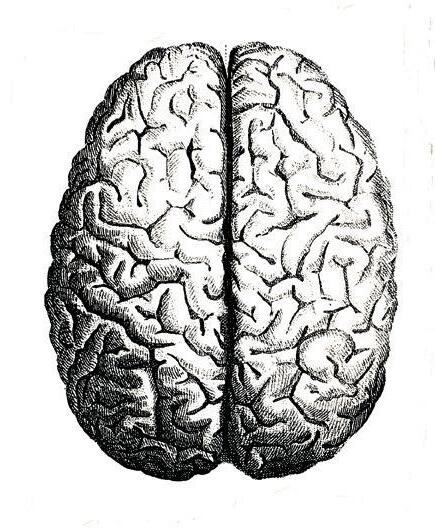
6 minute read
UNDERSTANDING the BRAIN
from Newsletter Q2 2015
by BrainHealth
Prominent U.K. Neuroscientist Joins the BrainHealth Team
“Understanding how the brain works and improving brain performance is key to quality of life,” said T. Boone Pickens, the Texas energy executive who has been a major underwriter of the Center. “The Center for BrainHealth is developing breakthroughs in this field. I like being involved with people who are on the forefront of discovery that will change the future for the better. It’s clear they are committed to bringing the best talent on board to achieve their objectives, and their partnership with Dr. Ian Robertson truly exemplifies that fact.” business at the Center for BrainHealth will be to investigate the possibility of enhancing its high performance brain training programs through neural engineering.
Advertisement
“To be able to recruit Dr. Robertson to our BrainHealth team is one of the greatest coups of talent,” said Sandra Bond Chapman, Ph.D., Center for BrainHealth founder and chief director. “Ian is respected as a world leader in advancing, building, and measuring brain resilience and its regenerative capacity.” expositor of the values and promises of the brain sciences, and will bring a powerful portfolio of talents to augment the scientific strength of the Center and its educational outreach efforts as well.”
Robertson was inspired to become more deeply involved with the Center after accepting an invitation to speak at its annual lecture series made possible by The Container Store.
Since 1989, Dean Moore has led the rapid growth and expansion of the School of Behavioral and Brain Sciences (BBS) at The University of Texas at Dallas, of which the Center for BrainHealth is part. His commitment to ensuring that students profit from the research underway while also encouraging innovation to expand the range of brainrelated studies has led to a dramatic increase in interest in neuroscience and put UT Dallas on the map as a leader in the field. During his 26-year tenure, the number of BBS students has risen from 500 to more than 2,400, partnerships between University departments have flourished and the development and expansion of existing and new brainburgeoning hubs of innovation have taken root.
“For all my years as a professor, Dean Moore has been an anchor, a super-powering fuel, and a calm leader in the clamor and in the consensus,” said Sandra Bond Chapman,Ph.D., founder and chief director at the Center for BrainHealth and Dee Wyly Distinguished University Professor in the School of Behavioral and Brain Sciences at UT Dallas.
“He encouraged, mentored, critiqued and inspired every stage
“So much of what is learned in brain science stays in science,” said Dr. Bert Moore. “It’s rare for practitioners and scientists to work in conjunction, translating the latest advances into programs to improve the lives of individuals. That’s what makes the Center for BrainHealth unique.”
“Dean Moore possesses the unique qualities of being a great mentor, visionary leader and one of the kindest human beings I have ever met,” said John Hart, Jr., M.D., medical science director at the Center for BrainHealth and Jane and Bud Smith Distinguished Chair. “I have learned more about being a better person, leader and teacher from him than any other mentor have had. I am privileged to call him my friend.”
Dean Moore stepped down as dean September 1. With the permanent endowed chair in his name at the Center for BrainHealth, his legacy will inspire the explorers and innovators in the field for generations to come.

“For his wise counsel, innovative spirit and steadfast support, we are forever grateful,” said Chapman. “We will deeply miss him as Dean, but his footprint is indelibly ingrained into our DNA.”
CENTER GOINGS-ON
Young Professionals Make $25,000 Gift for Mindfulness Research to Treat Depression

The Think Ahead Group (TAG) awarded $25,000 to Lyndahl Himes to study the effectiveness of mindfulness training to treat depression. Depression affects more than 350 million people worldwide. Himes, a Center for BrainHealth researcher and cognitive neuroscience graduate student, is seeking to uncover a way to treat it without reliance on prescription medication. Mindfulness training is a non-invasive practice that encourages a person to focus on the moment, without producing any thoughts or sensations. Himes will study the extent to which mindfulness training reverses the depression-related atrophy of the hippocampus, an area of the brain critical to emotional functioning. Himes hopes to validate mindfulness training as a low cost and side effect-free alternative to prescriptive treatments. Each year TAG, a young professionals organization, raises funds through membership and its annual Kentucky Derby Party in May to support Center for BrainHealth research. TAG members voted to fund Himes’ study from a pool of proposals.
“Everyone knows someone who has been or will be affected by depression at some point in their lives,” explained Preston Roush, TAG co-president. “We are pleased to support a research project with such promise and potential to reach a large population in need of life-enhancing brain health.”
Eric
Sandi Chapman, Ph.D. Founder and Chief Director, Center
for BrainHealth
Bennett, CPA Executive Director, Brain Performance Institute
World-renowned neuropsychology expert, Ian Robertson, Ph.D., will become the T. Boone Pickens Distinguished Scientist at the Center for BrainHealth. Known for his translational research into human attention, brain plasticity and rehabilitation, Robertson’s first order of
He will collaborate with Dr. Chapman and UT Dallas’ Biomedical Device Center director Rob Rennaker, Ph.D., to scope out various brain stimulation methods that may enhance attention, learning, and other brain functions. Roberston will explore multi-disciplinary approaches to advancing indices of brain health using various psychophysiological measures and will collaborate on neuroimaging studies.
“Dr. Robertson’s research accomplishments are impressively extensive and diverse,” said Hobson Wildenthal, Ph.D., UT Dallas president ad interim “He brings to the Center for BrainHealth not only his individual knowledge, insights, and creative research ideas, but also offers a very significant expansion of the Center’s international network of scientific advisors and collaborators. He is a very articulate and charismatic
“Dr. Chapman’s vision for fostering brain health through the development of nonpharmaceutical, cognitive neuroscience-based methods, chimes closely with my own interests, experience and background,” explains Robertson. “She has developed one of the few centers in the world that prioritizes this translational approach and has pulled together a fabulous team of scientists and clinicians to help her realize it. My first visit in February convinced me that this is a place where I could work with like-minded colleagues in an atmosphere of great possibility and development.“
He continued, “There is an incredible sense of possibility that exists at the Center and UT Dallas in general, the sense that if you have a good idea, then we can probably find a way to put it into operation.”
Robertson is currently the Chair of Psychology at Trinity College Dublin and was the founding director of Trinity College Institute of Neuroscience.

Study Reveals Brain Network Responsible for Cognitive Changes in Multiple Sclerosis

Approximately half of the 2.3 million individuals living with MS experience changes in cognition such as impaired concentration, attention, memory, and judgment, but the underlying brain basis for these effects has been largely elusive. New findings published in Neuropsychology reveal that decreased connectivity between network-specific brain regions are to blame for the central deficit common to the various cognitive changes associated with MS, slowed cognitive speed. Researchers at the Center for BrainHealth, in collaboration with UT Southwestern Medical Center, found individuals with MS exhibit weaker brain connections between the dorsolateral prefrontal cortex and posterior brain regions compared to healthy controls. The researchers believe that the diminished connections are likely the result of decreased white matter surrounding neurons in the brain.


“While white matter is essential to efficient network communication, white matter degradation is symptomatic of MS. This study really highlights how tightly coupled connectivity is to performance,” explained BrainHealth principal investigator Bart Rypma, Ph.D. The study recruited 29 participants with relapsing-remitting MS and 23 age- and sex-matched healthy controls. Study lead author Nicholas Hubbard, a doctoral candidate at BrainHealth, and Dr. Rypma are continuing to investigate the physiology of white matter to better understand cognitive speed reductions in MS and healthy aging.
Study Finds Nicotine Changes Marijuana’s Effect on the Brain
Approximately 70% of marijuana users also smoke tobacco, yet few studies have included tobacco users in marijuana research. Center for BrainHealth’s Francesca Filbey, Ph.D., Director of Cognitive Neuroscience of Addictive Behavior, and her team recently published a study in the journal Behavioural Brain Research, exploring the effects on the brain among marijuana users who also use nicotine. The study found an unexpected relationship between the size of the hippocampus, a region of the brain associated with memory and learning, and memory performance in individuals who use both substances; the smaller the hippocampal size, the greater the memory function compared to others in the marijuana and nicotine-using group. The team also found an association between numbers of cigarettes smoked per day; the greater the number, the smaller the hippocampus and the better the memory performance. In contrast, hippocampal size of non-users predicted a direct relationship to memory function; the smaller the hippocampus, the poorer the memory performance. There were no significant associations between hippocampal size and memory performance in individuals who only use tobacco or only use marijuana. “We have always known that each substance is associated with effects on the brain and hypothesized that their interaction may not simply be a linear relationship. Our findings confirm that the interaction between marijuana and nicotine is indeed much more complicated due to the different mechanisms at play,” said Dr. Filbey. “Future studies need to address these compounding effects of substances.”





